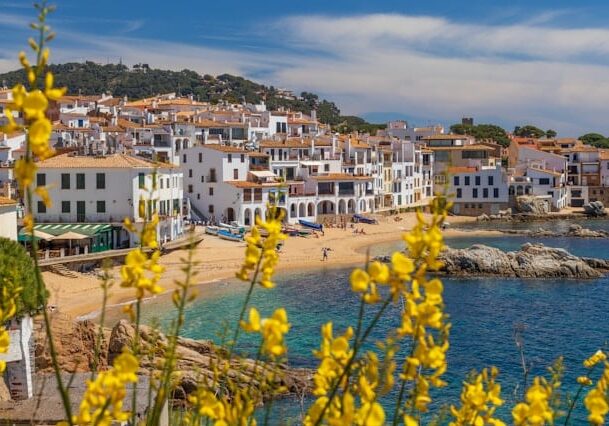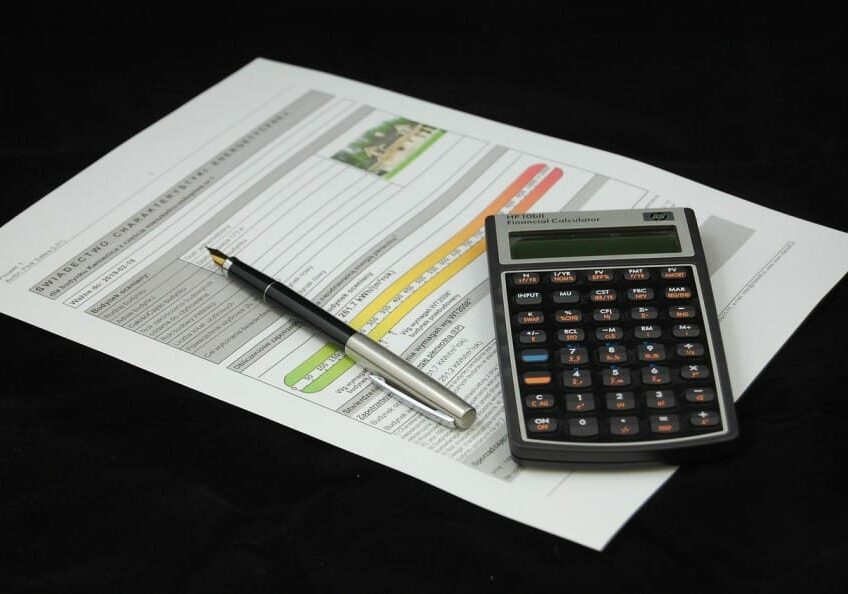Updated: June 25, 2025

Whether it’s buying a property in Portugal, eating out in restaurants, or taking stock of your daily Lisbon living cost, the relatively cheap prices make the country an attractive point on the map, even if prices are on the rise.
So, whether you have decided on moving to Portugal or are still exploring your options, in this article, we’ll delve into the cost of living in Portugal’s sunny capital, providing you with all that you will need to know before setting up shop here.
What is the cost of living in Lisbon?

The cost of living, as in any country, is dependent on your income, financial situation, and spending habits. Do you want to frequent that luxurious rooftop with your favorite cocktail? Are you happy to eat at home most nights? Do you want to enjoy the culinary delights of the country? These are the things that you should consider when looking at the cost of living. Yes, one thing that cannot be stated enough is that the costs of living will vary depending on your lifestyle.
The cost of living in Lisbon, Portugal, is generally very affordable compared with other European capitals. A single person’s monthly expenses often amount to around €742 while a family of four may spend approximately €2,640 (excluding rent). Housing costs will vary based on the neighborhood and the apartment size, with one-bedroom apartments costing around €1,200. Monthly budgets for groceries are around €200, for utilities are €122, and for transportation around €40 per month.
It is important to note that the Lisbon cost of living, from property to restaurants, is more expensive than in other areas in the country. In the interior and in other cities in Portugal, particularly in the parts of the country that do not have high numbers of expats, prices can be very cheap indeed and living expenses can be surprisingly low. Even Porto, the second-largest city in the country, is notably more affordable than its southern counterpart.
Our partner, Global Citizen Solutions, a boutique residency and citizenship by investment consultancy, focused on finding the perfect investment, citizenship, or residency program for individuals across the world, has recently developed a new passport ranking.
They take into account not only visa-free access to other countries but also investment opportunities and quality of life. In their Quality of Life Index, Portugal ranks in 6th position. This takes into account the cost of living alongside levels of freedom, happiness, environmental performance, sustainable development, and migrant acceptance. This highlights that, as countries go, Portugal is one of the best countries to live in for those looking for a high quality of life in an affordable country.
Cost of living in Lisbon: Property Prices
There are many beautiful neighborhoods in Lisbon, each with its own unique characteristics. Whether you are looking to live in the city center or in the surrounding area, you will find stunning properties to rent or buy. Note that property in the city center will be more expensive and, as you move further away from the city center, prices will decrease.
Knowing whether to pay rent or buy a property can be difficult. If you consider a longer time scale, then purchasing property in Lisbon is better, as you can receive a steady flow of income if you decide to rent out the property in the future, or sell for a profit, as property prices continue to increase.
However, we know that buying a property is a major investment, and renting may be better suited to your short-term or current needs. You can also rent first to discover which neighborhood you like the most and then consider searching for your ideal property. You’ll be able to find a range of property types, from modern apartments with air conditioning, to villas in Lisbon and the surrounding area. It will depend fully on what you are looking for.
In this part of our cost of living in Lisbon article, we’ll provide you with some insights into renting or buying property. As we’ve mentioned, if you buy or rent in the city center, or in-demand neighborhoods, then the prices will inevitably be higher than in more affordable parts of the city.
Buying a property in Portugal
Property in Portugal is generally more affordable than in other countries in Western Europe. However, for the Lisbon real estate market, prices have been increasing over the past years and you will need to take into account the housing costs.
In Lisbon city, the average asking house price stood at €6,934 per square meter in 2024. If you look at Greater Lisbon, this is reduced to €4,935 per square meter. Lisbon real estate has really come into its own in recent years and is now a top choice amongst foreign buyers to snap up a property. Note that the purchase price can be higher or lower than the asking price – although it is usually lower – so keep this in mind when negotiating with the seller. Lisbon land for sale is also much more affordable than buying a property close to the capital, and you’ll be able to customize the land to your heart’s content.
As you can see, in the capital itself, housing prices are much steeper than in the surrounding area. A little-known secret about buying real estate in Portugal is to time your search well. In the summer months, you will be able to snap up a cheaper buy in Portugal than in other parts of the year. This is because only 5 percent of properties are sold between May and August, and the bulk of sales (65 percent) occur between September-to-December. Given that there are fewer buyers, this means that there is less competition for properties.
Our guide to buying property in Lisbon should be able to provide you with all you need to know about purchasing property in the Portuguese capital. Note that the first step is to obtain a Portuguese Tax Number (NIF) and open a Portuguese bank account, to avoid transaction fees. There are many banks where you can open a bank account in Portugal, and you can even open one online. Some of the best banks include Millennium BCP, Novo Banco, Banco BPI, and Banco Santander Totta.
Alongside this, our e-book, Your Expert Guide to Buying Property in Portugal, will arm you with an easy six-step guide to the buying process, the best options to open bank accounts, where the best places to buy in the country are, plus key information on taxes, fees, and financing your property.
Renting a property in Portugal
The Lisbon real estate market is still affordable when compared to other cities in Europe although the city is steadily becoming more expensive.
A significant portion of the cost of living is usually attributed to rent, with a one-bedroom apartment in a central area in Lisbon costing upwards of €1,200 per month. To give you an indication of renting a one-bedroom apartment, average rent prices in Lisbon city center for a one-bedroom apartment will cost you around €1,415 per month, while a three bedroom apartment in the city center will set you back €2,558.
Cost of living in Lisbon: Taxes and Bills
In this section of our cost of living in Lisbon article, we delve into the taxes and bills that you should consider if you’re thinking about relocating to Lisbon.
Taxes

As an expat moving to Portugal, the non-habitual residence scheme (NHR) provided certain tax benefits.
However, this program has ended and is being replaced by the Tax Incentive for Scientific Research and Innovation – also known as the Portugal NHR 2.0. This scheme provides attractive tax advantages to expats for their first ten years living in the country.
Utility costs

For an 85m² apartment, expect to pay around €122 per month for utilities like electricity, water, and gas. For some apartments for rent, there will be no additional cost as this will be included in the rental price. Be sure to check if your bills are included or not in the rental price.
For mobile phones, a monthly plan with calls and 10GB+ data will cost you around €20 a month.
Cost of Living in Lisbon: Other Costs to Consider
From dining out to getting around the city, below we take a closer look at other costs that you’ll need to keep in mind should be considering moving to Lisbon.
Restaurants

You’ll find a range of restaurants in Lisbon, from extremely affordable eateries to a mid range restaurant, to luxury Michelin-starred restaurants. Walking around Portugal’s capital, you’ll be pleased to see many a tasca (traditional, local inexpensive restaurant) where you can happily eat very good quality food for between €8 to €15, often with a café and sobremesa (desert) included.
This is often typical traditional fare that is very well cooked in family-run restaurants. The price of domestic beer and wine in restaurants is generally low, with workers finishing the day with a €3 euro imperial (small beer) that is often even cheaper than this and some traditional tapas. A mid range restaurant will be a little more expensive, and you also find a wide range of cuisines to sample in Lisbon.
Indeed, the restaurant sector is one that has expanded considerably over the years, with cuisines from across the world and many vegetarian and vegan options. Do not worry, for those that eat meat, Portugal is one of the best places to find top-quality meat, cooked incredibly well.
For something a bit more special, a meal in a mid range restaurant will cost you around €55 for a three-course meal for two, and for luxury restaurants, you can expect to pay international prices.
Household essentials and the cost of in Lisbon

What’s more, the produce in Portugal is incredible, much of which is grown in the green hills of the Alentejo region, where the constant sunshine makes for delicious fruits and vegetables, in addition to the famous Porco Preto. Also, it will be no surprise to you that, because of the long coastline, the fish and seafood available are both cheap and extremely good.
When it comes to wine – and Portuguese wines are some of the best in the world – you can find extremely high-quality wines for as little as €5 (unheard of in many other countries).
Going grocery shopping is a very good indicator of the affordability of any city. In Lisbon, as mentioned previously, you’ll be happy to know that food in supermarkets and local markets is generally very affordable. A weekly grocery budget for one person can be around €100 depending on lifestyle and shopping choices, while, for a month, this will cost around €200-€400 per month depending on what products you buy, where you shop, and if you buy in bulk. Meat, fish, fruits, and vegetables are all pretty inexpensive and generally of very good quality.
The produce in the country is also excellent. Oranges from the Algarve, cheese from the Azores, fish straight from the Atlantic, wine from countless regions in the country – yes, you will be able to eat very well indeed.
Here you can see some average prices for common goods: Item Price Milk (1 liter) €0.97 Loaf of fresh white bread (500g) €1.47 12 eggs €2.71 Local cheese (1kg) €11.33 Chicken fillets (1kg) €6.76 Oranges (1kg) €1.73 Domestic beer (0.5 liter bottle) €1.25 Bottle of wine (mid-range) €5
Childcare and schooling

There are many very good quality English-speaking international schools available in Lisbon.
For international primary schools, expect to pay around €800- € 1,800 per year. You can see more information in our guide to international schools in Lisbon.
Healthcare

Under this, most essential medical services are almost free. You will be required to pay additional fees for non-essential services and treatments, which will vary in price. For example, a consultation will cost less than Accident & Emergency, and X-Rays will require you to pay an additional fee.
There is also private healthcare, which has become more popular. Private healthcare costs will depend on the consultation and treatment.
Dental treatment does not usually fall under the National Health Service for most residents. You will probably have to pay out of your own pocket unless you have private dental insurance. Elderly people and children may receive free treatment.
Dental treatment is not as expensive as in other countries. While a filling in the USA can cost you €160 and €100 in the UK, in Portugal, this would be €75.
You can read more in our article on healthcare in Portugal.
Transportation costs

When it comes to cars, petrol is currently €1.78 per liter in Portugal. Cars themselves can be expensive to buy in Portugal, but the price drops down steeply for used cars, so you may be able to find a bargain. However public transport is a very good option.
In Portugal, public transport is relatively cheap and pretty well connected. It is possible to travel from Lisbon to Porto for just over €30. The “Passe Navegante” public transport pass for Lisbon is €40 per month, providing access to all public transportation in the Lisbon area. For travel around the Lisbon Metropolitan area, you can get a monthly pass for €40. You also have discounts for those over 65’s and children under 12 travel free.
A monthly pass for families is also available, which costs €80 for the Lisbon Metropolitan. A monthly pass is also available just for Lisbon city and, for families, this will set you back €60. For an individual trip, this will cost you €2. With “zapping” you can quickly and easily top up your Viva Viagem card to get around the city.
Sports and leisure
Portugal is known around the world for its water sports activities. From surfing to kayaking, you have everything here. On dry land, you have swimming, running, hiking, or pretty much whatever you set your mind on. You should find that prices are generally quite reasonable for surfing lessons or even hiring equipment. Hiring a surfboard and wetsuit for a few hours will cost you around €10-20.
Golfing is also hugely popular in the country, with internationally recognized golf courses that see expats from across the world head to the country. While some golfing resorts will be pricier than others, you should find, for the most part, that they are quite affordable. Fitness clubs and gyms can be a little pricey, usually around €40. One of the cheaper options is Fitness Hut, and, if you enroll in one, you can access any Fitness Hut in the county.
If you want to head to the movies for the latest international release, then a ticket will cost you around €8 for an international release. You should know that the Portuguese value their art galleries, theatres, and cultural hotspots, so you should easily be able to find things to do in Lisbon and other bigger cities like Porto.
Shopping

Lisbon has many shopping malls and shops for you to get your shopping fix and you should have no problem finding everything that you would find in your local store back homes in terms of clothes and shoes.
Cost of Living in Lisbon for Retirees
Lisbon, and Portugal in general, has become a firm favorite amongst retirees looking for a high quality of life where they can stretch their money further.
The cost of living for retirees will also not set you back much, and you should be able to live a very high quality of life in the city. As mentioned, from grocery shopping to public transport, Portugal is an affordable country to live in. Healthcare is also excellent and very affordable in Portugal, particularly when compared with healthcare in the USA or other Western European countries.
What is the cost of living in Lisbon compared to the US?
So, is Lisbon expensive compared with the USA? Well, to provide you with an idea of Lisbon’s cost of living compared with the USA, below we have compared the two capital cities, Lisbon and Washington, and, as you can see, everything from average rent in Lisbon to restaurant prices tends to be more affordable in the Portuguese capital. The data is taken from Numbeo.
- The cost of living in Lisbon (excluding rent) is around 42 percent lower than in Washington, DC.
- Rent in Lisbon is 46 percent lower in Lisbon than in Washington, DC.
- Restaurant prices in Lisbon are 43 percent lower in Lisbon than in Washington, DC.
- The cost of groceries in Lisbon, Portugal, is almost 50 percent lower than in Washington, DC.
As you can see, prices in Lisbon are much cheaper than in the US, and you should find many low-cost items that would cost much more in the states.
However, should you do a quick search for “cost of living Lisbon Portugal” you’ll find that prices have been increasing in recent years. Regardless, the city – and the country as a whole – remain very affordable compared with other capitals and countries in Western Europe.
This is one of the many reasons why Portugal is seeing an increasing number of American expats and investors heading to the sunny shores of Portugal. With talk that Lisbon is the new LA, Americans are taking note and looking for a better quality of life, with cheaper healthcare, progressive legislation, pristine beaches, and a wonderful climate.
That’s without mentioning the fascinating history and rich local culture of Portugal, where locals are renowned for their welcoming nature, English is widely spoken, and gastronomy is spectacular.
It is not just Americans moving to Portugal as many nationals from Europe, China, and South America, significantly Brazilians because of the language, move to Portugal, alongside nationals from the world over.
Cost of living in Lisbon: Living the Luxury Lifestyle
Don’t be fooled to think that Lisbon is simply about good quality, cheap food. Lisbon also has some internationally recognized restaurants, including Michelin-starred eateries and rooftop bars. With exceptional views of the Tejo, these exclusive areas have their own price ranges. Those opting for a more luxurious quality of living can expect to pay international prices. You will certainly not be disappointed in terms of both the quality and ambiance of the many exclusive locations.
The luxury market in Lisbon is booming, with the Lisbon luxury property market expected to rise by 4 percent in 2025, surpassing cities such as Monaco, Geneva, Milan, and Paris. If you are seeking a luxury property in Portugal, then you’re in for a treat, as there are some stunning luxury abodes on the market. Note that, if you are looking for higher-priced properties and extra facilities, such as a pool or a gym, then the costs will be much higher. However, when compared to other countries in Europe, the costs will still be more affordable.
Our Luxury Real Estate Lisbon Guide offers more insight into luxury properties in Portugal.
Goldcrest is a buyer’s agent that is based in Lisbon. We provide expert, impartial advice on real estate investments and how to buy property in Portugal. From scouting out the perfect property through to property acquisition, we have you covered throughout the process. If you are looking to purchase property in Portugal, don’t hesitate to get in touch. Our team of skilled experts is available to solve all your real estate doubts, helping you with the property search and offering insightful expertise and strategic advice.Goldcrest: How We Can Help You
Why choose Goldcrest?
Frequently Asked Questions about the Cost of Living in Lisbon
What is the cost of living like in Lisbon?
The estimated monthly expenses for a single person in Lisbon, excluding rent, are around €742. For a family of four, the estimated cost is approximately €2,640, not including rent. The cost of living will depend on your lifestyle habits and if you enjoy a life of luxury.
Unlike many other European capital cities, Lisbon is quite affordable. It’s a great and largely affordable city for travel-lovers as there is much to explore in and around the city.
Is Portugal an expensive country to live in?
From Lisbon real estate to groceries, the capital is a relatively cheap country to live in when compared to other countries in Europe.
What is the cost of living in Lisbon compared to in the US?
Lisbon has a low cost of living and is much cheaper than US cities. For example, rent is over 50 percent cheaper than in Washington DC, restaurant prices are 43 percent cheaper, and the cost of living is 42 percent lower, not including rent.
Is Lisbon expensive to live?
While Lisbon is the most expensive city to live in Portugal, it is quite affordable when compared to other countries in western Europe, although, what once was a cheap city has seen its prices creeping up. This said, the cost of living in Lisbon remains affordable compared with other capitals in Western Europe, such as Paris and London.
How much money do you need to live comfortably in Lisbon?
A family of four can live a comfortable lifestyle in Lisbon for approximately €2,640, without rent. A single person’s estimated monthly cost is €742 without rent. The cost of living in Lisbon for a couple will be something in between. Note that the cost of living in Lisbon per month will vary depending on your lifestyle. Other European capitals, such as London or Paris, are invariably more expensive than Lisbon. Indeed, compared to other European countries, Portugal is very affordable.
Can I live in Portugal for 1000 euros a month?
Yes, an average person should be able to live in Portugal for 1000 euros a month, although it may be very difficult, given the increase in rent prices. If you live in a cheaper part of the country and depending on your lifestyle, it may be possible. If you live in Lisbon or Porto, however, it may be more difficult because typical rent prices are increasing, and the general cost of living is creeping up. Note that living in the city center is more expensive, and you will have very affordable neighborhoods on the outskirts of cities in areas where there is less demand. There are many cities in Portugal, so if you are looking to live well with little money, then Coimbra, Braga, and even Porto are considerably cheaper, particularly when it comes to rent and property prices.
Can I work remotely in Portugal?
Yes, the Digital Nomad Visa, launched in 2022, has made it easier for remote workers to relocate to Portugal. The average salary in Lisbon is quite low, so many expats work remotely, freelance, for an online business.
Is Lisbon a cheap place to live?
While Portugal is one of the most affordable countries in western Europe, Lisbon has its own price range. If you are looking to move to the capital, you should know that property is more expensive, although if you buy away from the city center, you should find more affordable properties. However, you will find that most things are still cheaper than in other Western European cities, although prices have been creeping up in the past few years.
What is the cost of living in Lisbon for international students?
As European capitals go, Lisbon is very affordable. With this said, you will find Lisbon has its own price range compared to other places in the country. However, given the strong student population, both Portuguese and internationals, you’ll find that the city is generally very affordable, particularly when compared with London, Paris, and other Western European capital cities.
While rents are increasing quite a bit, you should be able to find a room for around €350-500 for a shared apartment. It will be cheaper if you find a place to live in a part of the city that is not in high demand or is a little on the outskirts. Lisbon has a very good public transport system, made up of buses and the metro, so you should be able to get around easily enough.
In some places you’ll be able to grab a beer or coffee between €2 and €3, so yes, Lisbon is a pretty affordable city to live in for international students.
What is the cost of living in Lisbon for a family?
According to Numbeo, a family of four estimated monthly costs is €2,172, not including rent. Monthly costs will no doubt depend on your lifestyle and spending habits. However, you will find living expenses, for most things, more affordable than in most other countries in Western Europe.
How much does it cost to live in Lisbon?
A single person’s estimated monthly expenses in Lisbon are around €742 (excluding rent), while a family of four estimated monthly costs may be approximately €2,640, excluding rent. Bear in mind that rent in Lisbon can be expensive, so be sure to factor this into your Lisbon living costs.
Is Lisbon a good place to live?
Lisbon is renowned for its welcoming atmosphere, rich cultural diversity, and vibrant arts scene, making it an attractive place to reside. The sublime weather and gastronomy add to its appeal, as does its excellent healthcare and education systems – there are 30 international schools in the Greater Lisbon Area.
How does the cost of living in Lisbon compare to living in major cities in other countries in Western Europe?
Lisbon’s cost of living is lower than that of many cities in Western Europe, offering a more affordable lifestyle compared to many major Western European cities. The cost of living in Lisbon is 25 percent more affordable than Paris (including rent) and 42 percent lower than London (including rent).
How much is rent in Lisbon city center?
Rental prices in Lisbon vary depending on the neighborhood and size of the apartment. Below are the average prices for rent in Lisbon.
- A one-bedroom apartment in the city center costs around €1,415 per month.
- A one-bedroom apartment outside the city center costs approximately €1,099 per month.
- A three-bedroom apartment in the city center rents for about €2,558 per month.
- A three-bedroom apartment outside the city center averages €1,717 per month.
